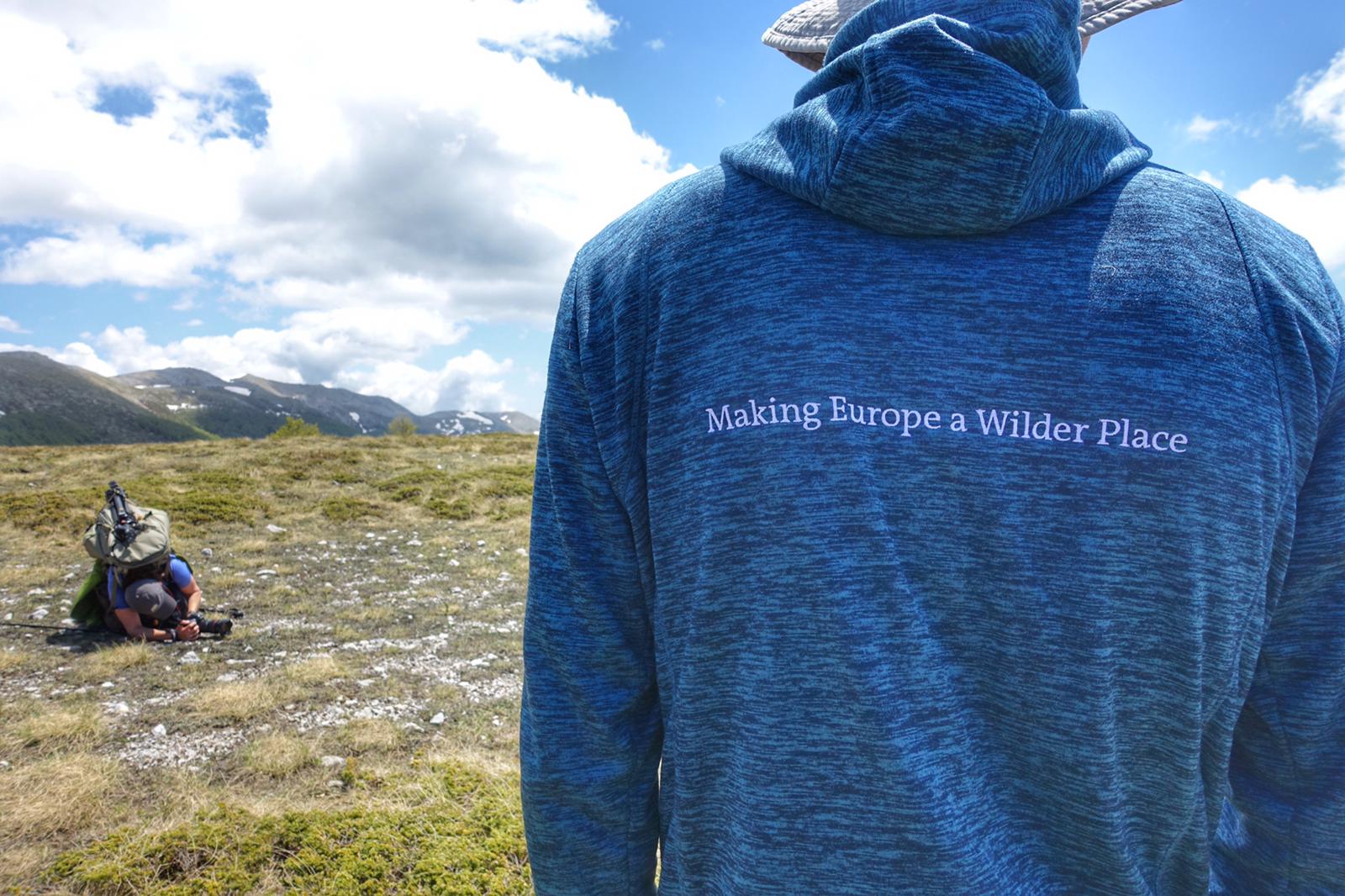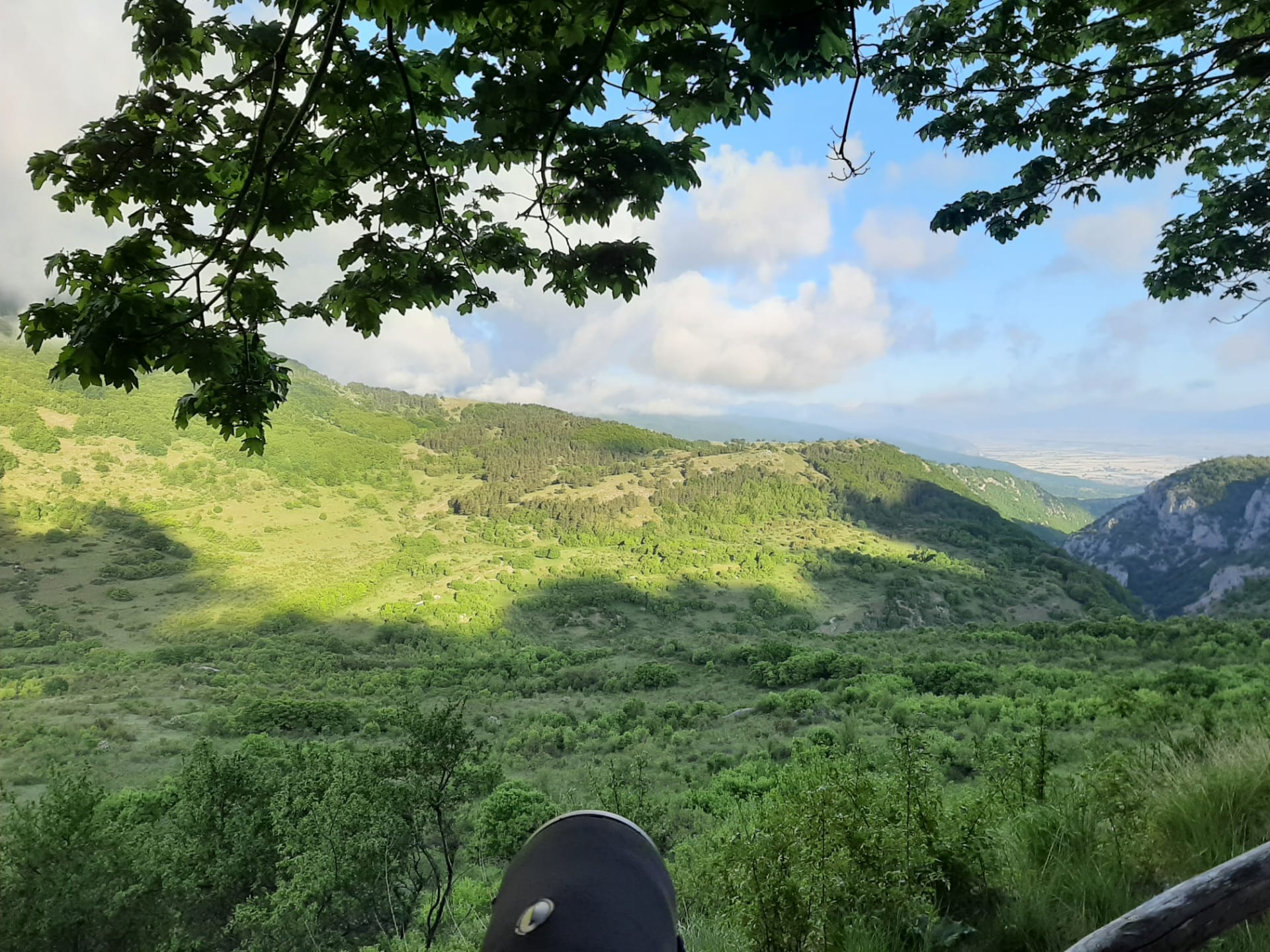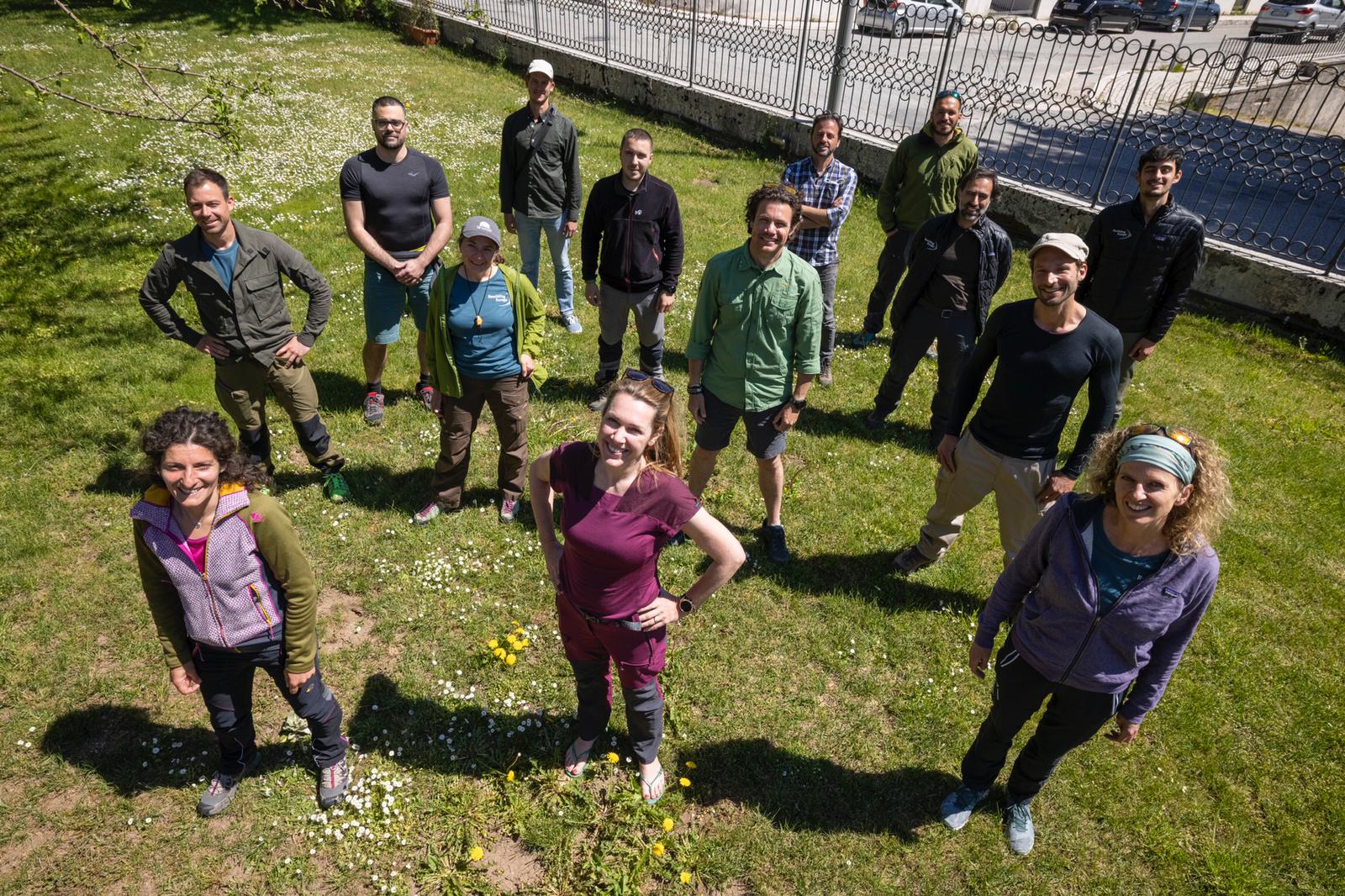Daniel Veríssimo, Rewilding Portugal’s Enterprise Officer, was present at the European Safari Company’s Tourism Training in Italy, and brings a magical experience in his luggage that he now shares with us.

An irrefutable challenge
This month I had the opportunity to participate in the European Safari Company Tourism Training. This is my travel diary, a firsthand version of this experience of 5 days and 4 nights through the Mountains of Central Italy, in the National Park of Abruzzo Lazio and Molise, one of the oldest parks in Italy and one of the most famous nationals parks of Europe. People from Portugal, Croatia, Slovenia, Netherlands, Germany and Italy participated in the program designed by Aukje, from European Safari Company (ESC) and Simon from Nature Tourism Development. Our guides on this experience and discoveries were Umberto and Valeria, local guides from WildLife Adventures. An important highlight to the participation from two operators of our Greater Côa Valley, Fernando Romão from WildLife Portugal and Paulo Martinho from WildCôa, members of our Wild Côa Network .
The objective of this training was to form nature guides for the European reality, inspired by safaris on the African continent. We learned a lot about how to present experiences, the importance of hospitality to customers and ethics, so important in the nature tourism industry.
Magical and inspiring places
I was also lucky to experience magical moments, those that leave a smile on our face and a sparkle in our eyes. From a walk through a century-old forest with large old trees with majestic canopies, to meeting a curious fox or seeing a wolf chasing a deer, something that seemed straight out of a National Geographic documentary, a very special experience. I heard inspiring stories of a well-managed park with its own structure and an ambitious and visionary Ministry of the Environment. In the early 1990s there were no deer or roe deer in the park, but after a reintroduction program the two species of herbivores have returned, they are quite abundant and luckily for visitors they are relatively easy to see. Within the boundaries of the national park, I saw no walkways or swings, I saw no roads up every mountain, and I saw no outlaw fire. I saw clean, well-maintained trails, I saw public transport between the park villages and points of interest, and I saw green, wet forests. I saw wild landscapes teeming with life!
I heard that the economic argument is not used to spoil and exploit, but rather to conserve and restore. The National Park was extended to new areas, at the request of local populations, to promote economic development in the region. At a time when rural and agricultural abandonment presents challenges, and is in fact an increasingly common situation across Europe – from Portugal to Poland and from Spain to Greece, the restoration of natural areas is an opportunity not only to store carbon and protecting nature, but also to provide new opportunities for local populations.

Example to be replicated in Portugal?
The good work of Rewilding Apennines, which works to increase coexistence with an innovative concept – “smart bear” communities – has the important mission of protecting apiaries and chicken coops, while promoting the natural dispersal of bears, removing barbed wire and pruning abandoned apple and pear orchards to increase food availability and further develop a local economy based on nature and with a strong focus on tourism and cooking. This ensures that conflicts with wildlife are rare and localized and that rural populations benefit from nature in a sustainable and harmonious way.
The trip to Italy leaves questions and ideas in the air to apply in Côa and to various areas of our country. Is it possible to imagine something identical in our country? In Serra da Estrela, Montesinho or Gerês? Geography and climate are identical. Can the Greater Côa Valley unite the abundance and diversity of birds with a great abundance of herbivores? Could the coexistence of predators in the Apennines with bears and large populations of wolves be replicated in Portugal? It sounds difficult, but if the Italians can, why not us? I believe in a wilder Portugal!
